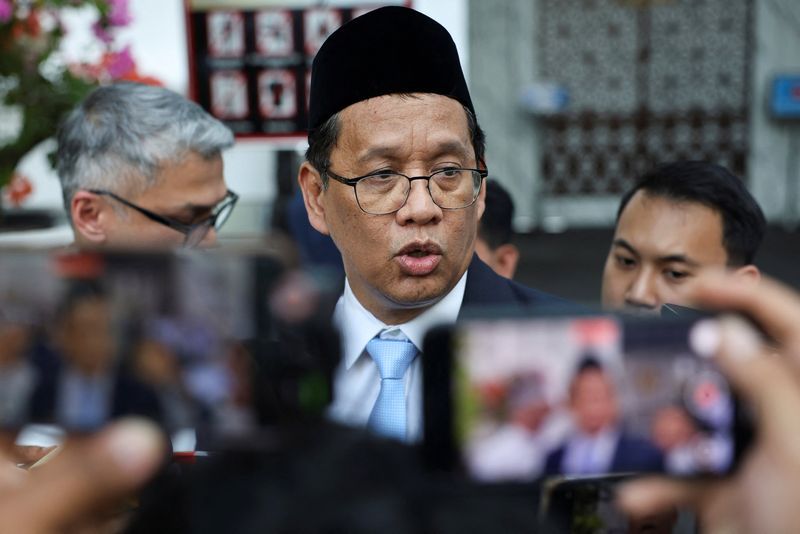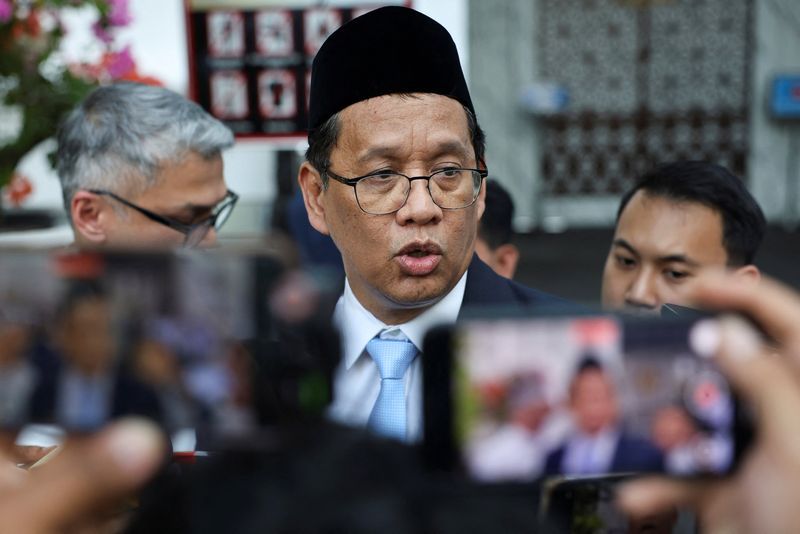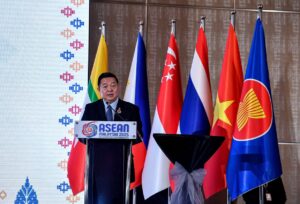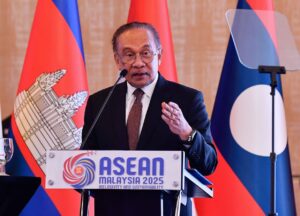
JAKARTA (Reuters) -Just a few months before being named Indonesia’s new finance minister, Purbaya Yudhi Sadewa, raised eyebrows in markets by calling the International Monetary Fund “stupid” for cutting its growth outlook for Southeast Asia’s largest economy.
“Don’t believe the IMF. If you want economic prediction, ask me. I know better,” he said, even though the lender’s 2025 GDP growth forecast of 4.7% was largely in line with analysts’ expectations and reflected global uncertainty.
Purbaya said Indonesia’s economy crashed during the Asian financial crisis in the late 1990s when it requested financial assistance from the IMF, but did much better in subsequent crises without the IMF.
The comments provided a glimpse of the governing style of Purbaya, 61, who was sworn in as finance minister on Monday by President Prabowo Subianto, replacing Sri Mulyani Indrawati, one of the country’s longest-serving finance ministers who had won the trust of investors both at home and overseas.
Seen as a surprise pick by markets, Purbaya has aligned with the president’s desire to grow the economy at a faster clip than its current 5% rate.
The removal of Sri Mulyani, who at one time served as an IMF executive director, came after two weeks of often violent protests and unrest across the country. Initially triggered by fury over big allowances for legislators, the protests later broadened to target many issues including government spending priorities.
Shortly after his inauguration, Purbaya said the unrest reflected “the voice of a small part of our people”, promising that protests would cease as he embarks on the task of boosting economic growth and creating more jobs.
He said Prabowo’s goal of lifting economic growth to 8%, a rate last seen in 1995 and considered by economists as ambitious, was “not impossible”.
“We will create a fiscal policy that has an optimal thrust for the economy. … If you don’t spend, the economy doesn’t move,” Purbaya said.
FISCAL CREDIBILITY
Economists have credited Sri Mulyani for reforming Indonesia’s taxation system and steering the country through many global challenges while keeping a tight leash on the budget to ensure the government is not saddled by heavy debt.
Such is her reputation that Mohit Mirpuri, fund manager at SGMC Capital, said her departure “marks the end of an era of fiscal credibility”.
Prabowo, on the other hand, won last year’s election comfortably on the platform of costly welfare programmes including providing free meals for 83 million children and pregnant women.
Speculation has been rife that Prabowo, who prior to taking office had said Indonesia was underleveraged, might remove a legal deficit ceiling for the annual budget deficit of 3% of GDP, a rule introduced after the late 1990s crisis to control public debt.
Asked whether he is committed to the deficit ceiling, Purbaya said: “I am a fiscal expert, so I fully understand what a prudent fiscal policy is like.”
PRO-GROWTH
Purbaya said he was surprised when he was told by phone of his appointment as finance minister. “I thought I was scammed,” he told reporters.
Purbaya, who studied electronics engineering at the Bandung Institute of Technology before obtaining his master’s and doctoral degrees from Purdue University, U.S., began his career as a field engineer at Schlumberger Overseas SA, a Houston-based technology company now renamed SLB, according to his biography at the deposit insurer.
He moved on to economics when he joined state-owned financial firm Danareksa in 2000, and later headed brokerage Danareksa Securities for two years until 2008.
Purbaya joined the government under various roles since 2010, and has been the head of the Indonesia Deposit Insurance Corporation since 2020.
Herman Saheruddin, who worked closely with Purbaya on research at the deposit insurer, said Purbaya has a clear vision, is detail-oriented and “very pro-growth”, often scrutinising numbers on a report that he had produced.
“One view he’s had that has never changed is his belief Indonesia can grow more than 5% and become an advanced country,” Saheruddin said.
In a speech on August 20, Purbaya highlighted the importance of equitable development for social justice and recalled the economic thinking of Prabowo’s father, Soemitro Djojohadikoesoemo, who was an economist and minister under Indonesia’s late authoritarian ruler Suharto.
“To be able to achieve high growth, the key is to focus on ourselves through strengthening household purchasing power, increasing domestic investment and boosting productivity in real sectors,” Purbaya said.
Josua Pardede, an economist with Bank Permata, said Purbaya faces many challenges, including convincing investors he would maintain fiscal discipline, central bank independence, as well as the integrity of data that Indonesia produces.
“He must also restore public confidence. Taxpayers have been disappointed they contributed a lot but they see unproductive spending, such as for parliament allowances.”
(Reporting by Gayatri Suroyo and Stefanno SulaimanEditing by Shri Navaratnam)






